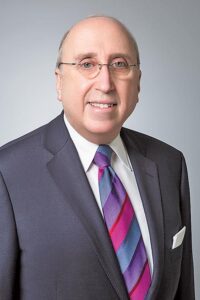
Article contributed by Robert L. Sacks and Jaclyn K. Ruocco, Ellenoff Grossman & Schole LLP
An area of interest to trade associations in recent years has been group health coverage for members’ employees and their dependents. The passage of the Patient Protection and Affordable Care Act (the “ACA”) in 2010 has helped stimulate interest in this area. However, in New York, existing legislation limits the ability of insurance carriers to underwrite a single group health plan for a trade association.
In New York, for an insurance carrier to issue an association a group health policy, the association must be in active existence for two years and be formed principally for purposes other than obtaining insurance coverage for its members. In other words, the group must have commonalities of purpose, business activities and employer governance. The resulting structure assumes that the association members are employers in relation to their work force and that the work force is composed of “common law” employees (as distinguished from 1099 independent contractors) who are not covered by plans maintained under union contracts. In addition to the above, the association would also be considered a Multiple Employer Welfare Arrangement (a “MEWA”) under ERISA (the federal law that regulates health and retirement plans) because a purpose of the group health arrangement is to cover the employees of multiple, unrelated employers.
Let’s assume the association opts for fully-insured MEWA status through a licensed health insurance carrier (as opposed to a self-funded MEWA). It will aim for a large group, experience rated policy where it can get the advantages of the economies of larger groups of employers and better (or at least less volatile) claims experience of the association as a whole.
Enter the New York small group rules — New York law provides that if an association group includes one or more employers with 100 or fewer employees exclusive of spouses and dependents, then the small employer group must be community rated for purposes of setting premiums. Community rating will normally produce higher premiums for a small employer than it would obtain as part of a large employer group because “the premium for all persons covered by the policy or contract form is the same based on the experience of the entire pool of risks covered by that policy or contract form without regard to age, sex, health status or occupation”.
It cannot be assumed that an association will be rated as a large group even where the number of all covered employees, in the “aggregate”, among the member employers exceeds 100. Under New York law eligibility for large group rating is determined by looking through the association as an aggregate to the number of employees of each member. In this case, neither the New York “look through” approach nor the small group rules are superseded by ERISA or the ACA.
The New York Department of Finance has explained that the look through provision in the case of a MEWA is necessary to prevent small employers from avoiding certain consumer protections that would otherwise apply under the ACA. State small group rules are also described as necessary to protect the underwriting pool in which state insurance exchanges operate from adverse health claims experience.
Can New York’s concerns over some aspects of association plans be reconciled with the benefits that an insured association MEWA can produce? Here are some suggested measures NY might consider either through regulatory action or legislation to help that process:
- Require the association that sponsors the plan to clearly meet the higher standards for single group plan status under ERISA as well as the tax exempt and “line of business” requirements of Section 501 (c) (6) of the Internal Revenue Code —this would ensure that the sponsoring association is not merely an insurance-focused organization but one that is engaged in multi-program industry advancement.
- Permit aggregation for employer groups that include groups of employees that due to their intermittent or short-term work patterns are unable to achieve coverage under standard, small employer, community rated plans—employees in construction, motion picture production and other industries often work on a project-by-project basis.
- Require that the group health insurance policy have specified levels of coverage pegged to ACA (or to the States Exchange’s) levels and specified of essential benefits coverage.
- Require that participating employers pay at a minimum a specified threshold of the individual employee’s premiums.
- Require that the association plan cover in the aggregate at least 101 employees annually.
This article is intended as a general informational discussion of the selected topic and is not legal advice or intended as legal advice. Readers are advised to consult with attorneys and other professionals for advice and guidance with respect to specific situations.
 Robert L. Sacks is a Partner at Ellenoff Grossman & Schole LLP, and practices in the firm’s Labor and Employment Practice Group and in all phases of labor and employment on behalf of management, ERISA, principally as applied to multiple and multi-employer plans, trade association law and antitrust.
Robert L. Sacks is a Partner at Ellenoff Grossman & Schole LLP, and practices in the firm’s Labor and Employment Practice Group and in all phases of labor and employment on behalf of management, ERISA, principally as applied to multiple and multi-employer plans, trade association law and antitrust.
 Jaclyn K. Ruocco is an associate in the Firm’s Labor and Employment Practice Group. Ms. Ruocco represents hospitality companies in all areas of federal, state and local labor and employment law, including traditional labor relations, employment counseling, and employment litigation defense. As part of her practice, Ms. Ruocco has broad experience in negotiating and interpreting labor contracts and separation agreements, conducting management and employee trainings, and devising company policies.
Jaclyn K. Ruocco is an associate in the Firm’s Labor and Employment Practice Group. Ms. Ruocco represents hospitality companies in all areas of federal, state and local labor and employment law, including traditional labor relations, employment counseling, and employment litigation defense. As part of her practice, Ms. Ruocco has broad experience in negotiating and interpreting labor contracts and separation agreements, conducting management and employee trainings, and devising company policies.
Robert L. Sacks (RSacks@egsllp.com) and Jaclyn K. Ruocco (jruocco@egsllp.com) can be reached via phone at 212-370-1300.























